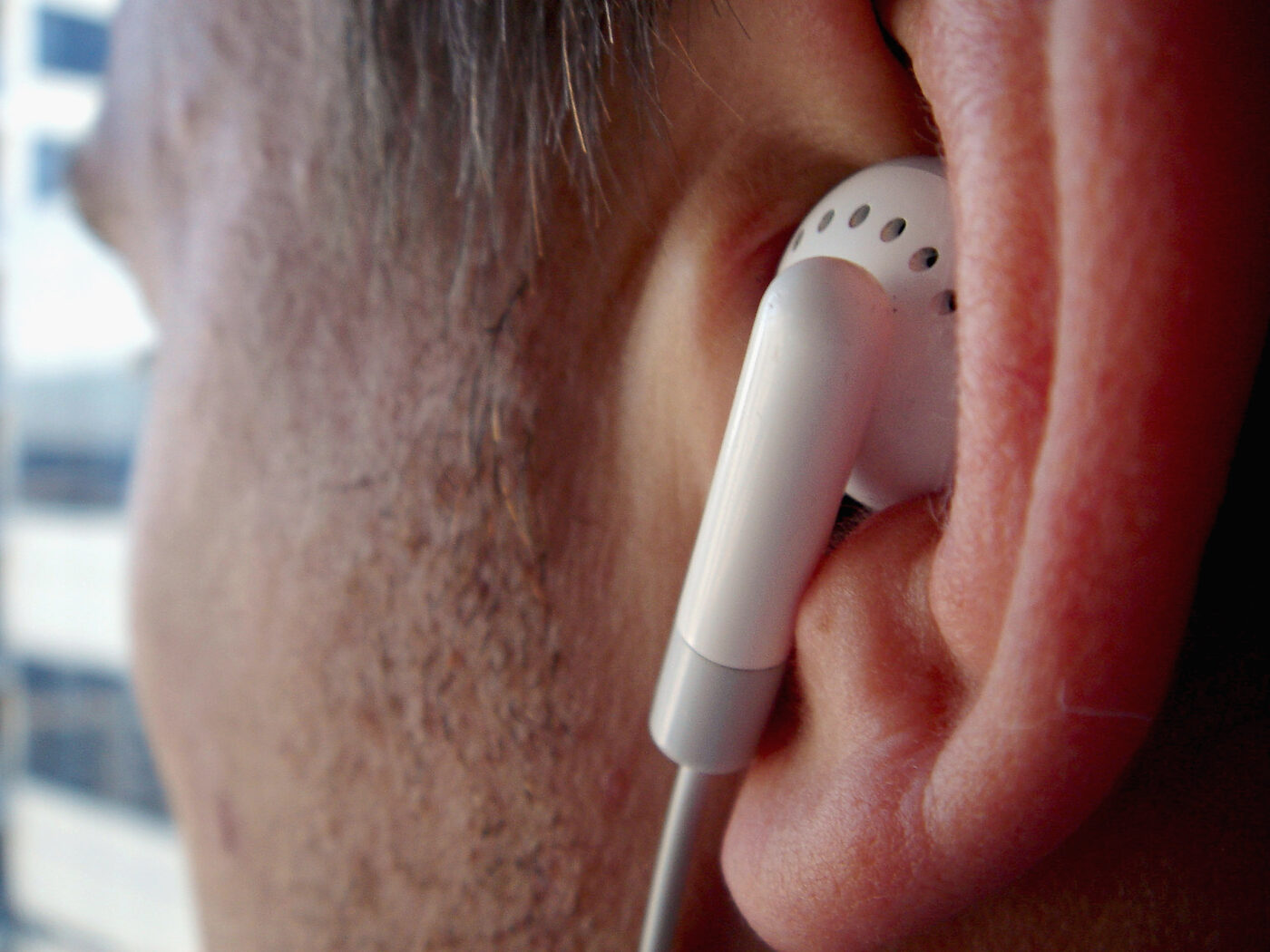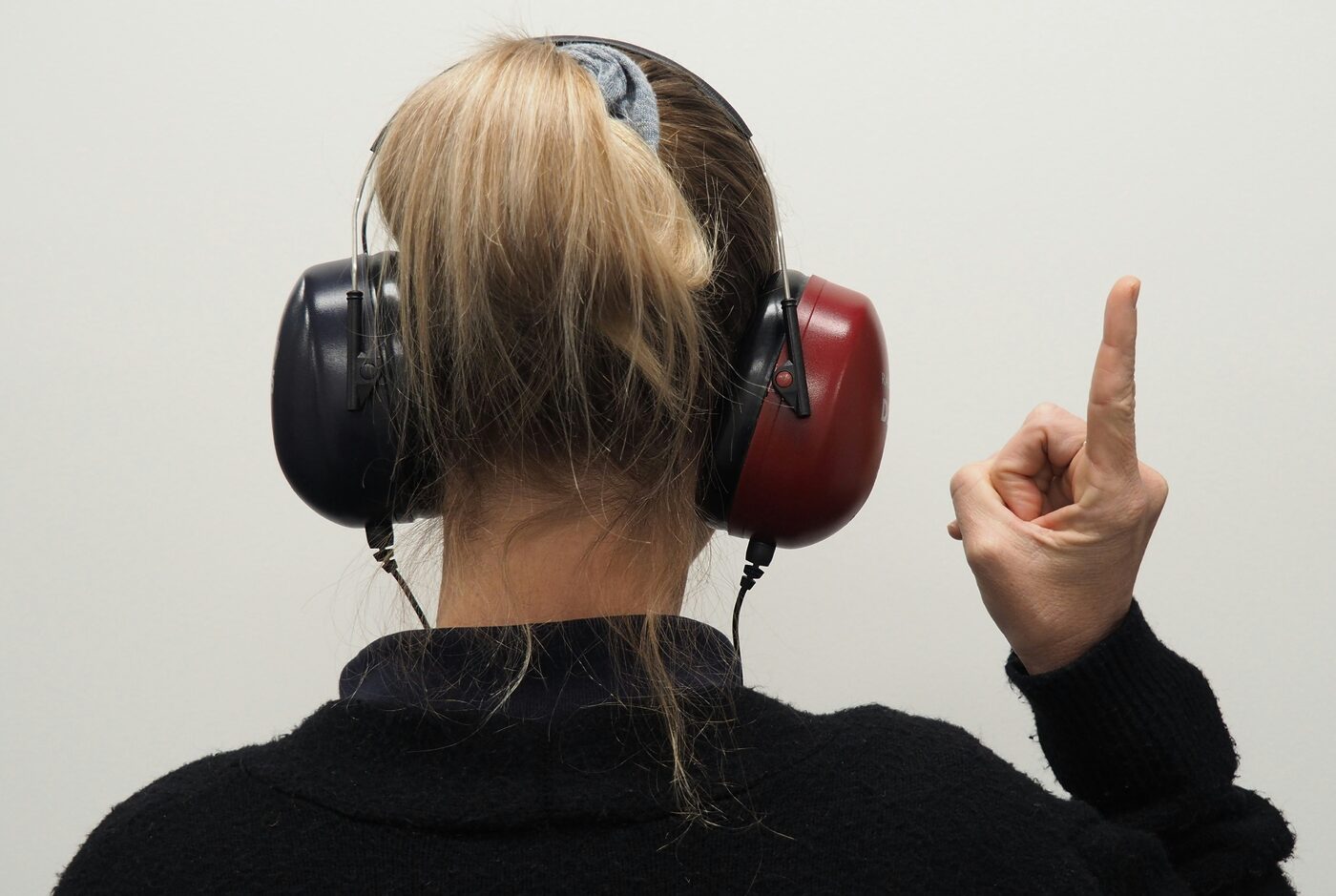How to reduce risk factors for hearing loss through proper hearing maintenance practices.

Set your headphone volume below 60%.
As streaming content becomes more common, it’s easy to see people listening to music or watching videos while wearing headphones. Accordingly, to listen to all the details of the sound, many people set the volume to the highest level with headphones. When listening to music with headphones, it is best to listen at less than 60% of maximum volume and only for about 60 minutes. day. The World Health Organization (WHO) recommends the ‘60.60 rule’.
Avoid using cotton swabs
After showering, many people use cotton pads to keep their ears clean and cool. However, frequent use of cotton swabs or ear picks will be a poison that harms ear health. This is because earwax protects the inside of the ear and protects the external auditory canal from germs such as dust and bacteria. Also, if you dig into your ears too deeply, you run the risk of damaging your ears as well as hearing loss.
take the correct position
People today who sit in chairs for long periods of time often do not maintain the correct posture, such as crossing their legs or resting when sitting. This condition causes further distortion of the spinal cord, which is a common cause of hearing loss. Since the spinal cord is closely connected to the cranial nerves, including the ears, if the spinal cord deformation occurs as a result of incorrect posture and habits, the nerves in the brain are compressed and there is a high risk that cranial nerve activity will decrease, leading to hearing loss. Therefore, it is advisable to maintain the correct posture and practice stretching to relax the muscles of the body.
Get enough sleep
According to the otolaryngology team at Bucheon Hospital of Soonchunhyang University, a study showed that the mechanism by which sleep deprivation causes hearing loss was revealed through animal experiments. The research team believed that lack of sleep causes hearing loss through various mechanisms, including increased inflammatory cytokines, abnormal ionic homeostasis, and damage to hair cells. Since lack of sleep is at the root of all diseases such as cardiovascular disease, obesity, and diabetes, it is essential to get enough sleep to maintain hearing.


Avoid noisy places
The key to maintaining hearing is not to listen to sounds that damage hearing. If you have no choice but to pass a place where noise pollution occurs, it is a good idea to cover your ears, even if it is inconvenient. Chronic exposure to noise above 80dB can increase the risk of ‘noise-induced hearing loss’, which occurs when cells in the cochlea are damaged. Unless it is an unavoidable situation, it is better to avoid going to noisy places.
Avoid consuming caffeinated drinks
According to a study at McGill University in Canada, excessive caffeine consumption can affect hearing loss. If you must consume drinks containing caffeine, it is better to consume less than one cup per day. It is also important not to skip meals, and establishing eating habits that are good for hearing, such as a diet that includes fresh fruits, vegetables and whole grains, is also helpful in maintaining hearing.
Get a hearing test from time to time
Doing a vision test but not a hearing test is an act of overlooking and neglecting your ear health. Hearing loss that may occur as a result of carelessness in maintaining and managing hearing reduces work efficiency and learning ability, and increases the risk of higher treatment costs. Therefore, diagnosing hearing loss correctly and having regular hearing tests is one of the smart preventive measures to maintain hearing.
‘);
2024-10-22 05:05:00
#hear #lifestyle #habits #reduce #hearing #loss
